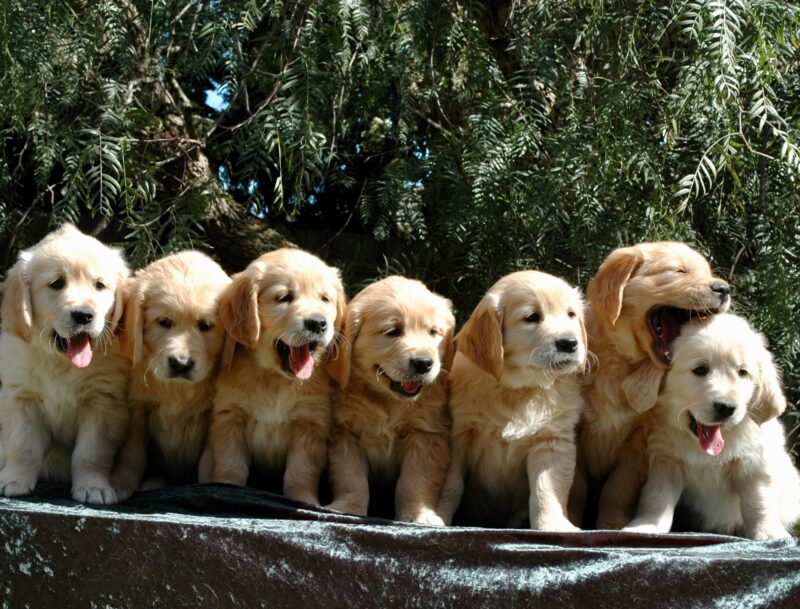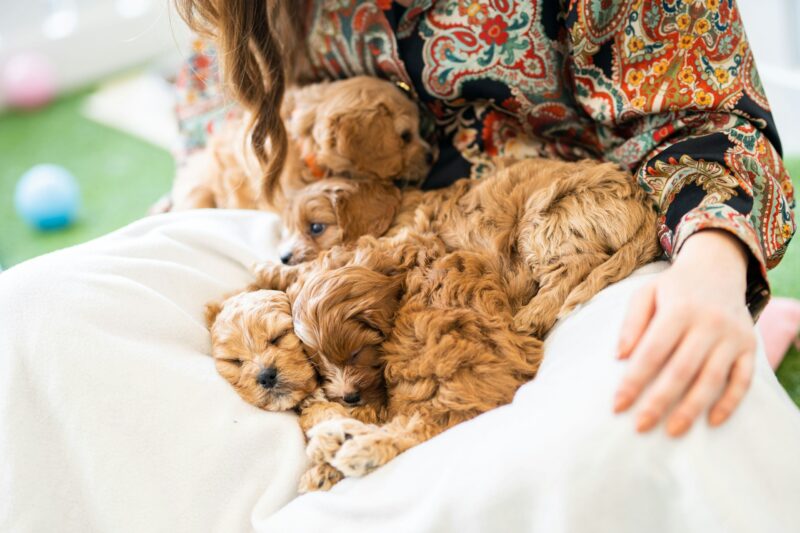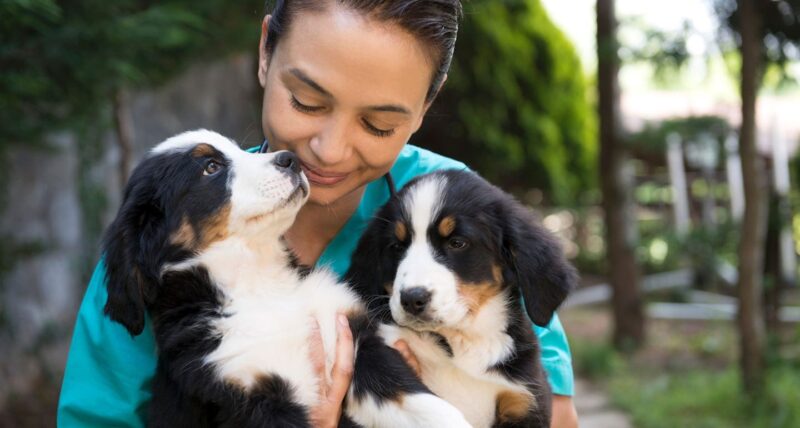Bringing a puppy into the home is an exciting and joyful milestone, but it starts with making the right choice when it comes to the breeder. In a city as bustling and diverse as New York, finding a breeder who prioritizes health, ethics, and transparency is not only important, it’s essential. A thoughtful, informed approach ensures that the new puppy is coming from a place of genuine care and responsible breeding.
What Makes a Breeder Reputable?

A reputable puppy breeder isn’t simply a source for adorable puppies. What separates the best from the rest is an unwavering commitment to animal welfare and ethical practices. Responsible breeders take a comprehensive, holistic approach to raising puppies, one that safeguards the physical and emotional health of both parent dogs and their litters.
A few key characteristics of reputable breeders include:
- Clean, spacious, and humane living conditions
- Regular veterinary care for both puppies and parent dogs
- Genetic health testing and health guarantees
- Controlled, low-volume breeding focused on quality, not quantity
- Early socialization to prepare puppies for life in a home environment
Breeders who meet these standards typically allow in-person visits or offer transparent virtual walkthroughs. This level of openness signals that the breeder has nothing to hide and is proud of the way their dogs are raised.
Why Local Matters in New York City

In a city like New York, choosing a local breeder offers several important advantages. Not only does it provide the opportunity to meet the puppies and see the facilities in person, but it also gives future pet owners a deeper sense of confidence in the quality and care that went into raising the puppy.
Visiting a local breeder allows for:
- Meeting the puppy’s littermates and observing social behavior
- Seeing the condition and temperament of the parent dogs
- Evaluating the cleanliness and safety of the breeding environment
- Discussing care routines, diet, and vaccinations in real time
These visits also provide a chance to ask questions and build a relationship with the breeder, something that becomes invaluable as new puppy owners navigate the first few weeks at home.
Spotting Red Flags in the Puppy Market
Unfortunately, not all breeders operate with the same level of integrity. Some facilities prioritize profits over the welfare of animals, leading to issues like poor socialization, inherited health problems, and behavioral disorders. Recognizing the signs of a potential puppy mill or low-quality breeder can save future pet owners years of heartache and thousands in vet bills.
Here are some red flags to watch for:
- No access to the breeding facility or refusal to share photos/videos
- Puppies offered under eight weeks of age
- No proof of veterinary care or vaccinations
- Constant availability of multiple breeds
- Lack of documentation for health testing
A trustworthy breeder welcomes transparency, encourages questions, and places the long-term well-being of their animals above all else.
Choosing the Right Breed for NYC Living

While the breeder’s ethics are vital, choosing the right breed for city life is just as important. Some puppies thrive in apartment settings with regular walks and mental stimulation, while others require more space and outdoor access. Popular NYC-compatible breeds include the Cavapoo, Maltipoo, Havanese, Mini Goldendoodle, and French Bulldog.
Key factors to consider when selecting a breed:
- Energy level and daily exercise needs
- Noise sensitivity and barking tendencies
- Grooming and coat maintenance
- Size and adaptability to small spaces
Reputable breeders will guide prospective owners through this decision-making process, ensuring a good match between puppy and lifestyle.
Ensuring a Healthy Start for Every Puppy
A puppy’s health in the first few months of life sets the stage for their long-term well-being. Quality breeders collaborate closely with veterinarians to provide vaccinations, deworming, and thorough health checks before any puppy is placed in a new home. In many cases, puppies are also microchipped and come with a written health guarantee.
Health protocols from responsible breeders typically include:
- Age-appropriate core vaccinations
- Screening for common breed-specific genetic conditions
- Parasite control (fleas, ticks, heartworm)
- Proper diet and nutrition from an early age
- Basic training and positive handling from birth
These early efforts not only safeguard the puppy’s health but also support smoother transitions into family life.
The Role of Early Socialization

Puppies are most impressionable during their first 8–16 weeks of life. Socialization during this critical window helps reduce fear-based behaviors and supports emotional stability. Ethical breeders introduce puppies to a range of stimuli (people, sounds, surfaces, and other animals) to build confidence and resilience.
Well-socialized puppies are typically:
- Less fearful or anxious in new environments
- Easier to train and housebreak
- More adaptable to city sounds and routines
- Better with children and other pets
This foundation leads to fewer behavioral issues later on and helps ensure a stronger bond between pet and owner.
Finding a NYC Puppy Store with Integrity
For those beginning the search for a healthy, ethically raised puppy, visiting a NYC puppy store with high standards can be an excellent place to start. Some locations maintain close partnerships with vetted breeders, provide comprehensive health documentation, and offer a welcoming environment for potential pet owners to meet puppies in person.
Prospective dog owners should look for a location that emphasizes clean facilities, early socialization, and transparency in the adoption process.
Verifying Credentials and References

Before making any final decision, it’s smart to ask for references or reviews from previous puppy buyers. Many reputable breeders are happy to connect prospective owners with past clients. Verified online reviews and ratings on pet directories also offer valuable insight into the breeder’s reputation and customer experience.
In addition, ensure the breeder holds any relevant licenses or certifications, and ask to review documentation for health tests and veterinary visits. Transparency here is a strong sign of ethical operations.
When in Doubt, Consult an Expert
If evaluating a breeder feels overwhelming, consider consulting with a veterinarian, dog trainer, or rescue advocate familiar with the NYC dog scene. These professionals often have trusted networks and can provide recommendations based on firsthand experience.
For those exploring designer breeds like Cavapoos or Maltipoos, it’s especially important to avoid online scams or unverified breeders. Reputable facilities typically maintain a waitlist and do not advertise through classified websites.
Final Thoughts: Trust Takes Time
Choosing the right breeder isn’t a process to rush. It’s a decision that will shape a puppy’s health, happiness, and behavior for years to come. The best breeders stand out through their transparency, their passion for animal welfare, and their dedication to doing things the right way, even when it’s not the easiest or most profitable path.
In New York City, where choices are plentiful but quality varies, the most trusted puppy breeders rise above the rest by offering compassion, ethics, and consistent care. A little due diligence now ensures a future full of joyful wagging tails and unconditional love.







